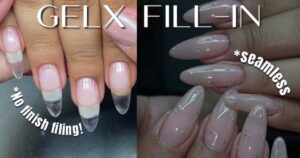In the pursuit of smooth, hair-free skin, many individuals seek the benefits of laser hair removal. However, for those adorned with tattoos, a pertinent question arises: what happens if you undergo laser hair removal over a tattoo? This article aims to shed light on the potential risks and considerations associated with this combination. By delving into the possible damage to tattoo pigment, skin reactions, and alternative options, we hope to equip readers with the knowledge needed to make informed decisions about their hair removal journey.
Key Takeaways
- Laser hair removal can compromise the integrity and appearance of a tattoo, causing fading, distortion, and damage to the artwork.
- Different skin types and tattoo characteristics can influence the risk and outcome of laser hair removal on tattoos.
- There are alternative methods for hair removal on tattooed areas, such as waxing, depilatory creams, electrolysis, and shaving.
- Precautions should be taken before and after laser hair removal, including consulting with a tattoo artist, protecting the tattoo with a barrier cream, and following post-treatment care instructions.
The Risks of Laser Hair Removal on Tattoos
Laser hair removal, when performed on tattoos, carries inherent risks that can potentially compromise the integrity and appearance of the tattoo. The process of laser hair removal involves using targeted laser energy to destroy hair follicles, which can also affect the pigment of a tattoo. The heat generated by the laser can cause the ink particles to break down, leading to fading or distortion of the tattoo design.
The laser can cause burns or blistering on the skin surrounding the tattoo, further damaging the artwork. It is crucial for individuals with tattoos to consult with a knowledgeable and experienced laser technician before undergoing hair removal treatments. They can assess the tattoo’s location, size, color, and age to determine the potential risks and offer appropriate guidance to minimize any negative effects on the tattoo.
Potential Damage to Tattoo Pigment From Laser Hair Removal
While laser hair removal treatments have the potential to cause damage to the pigment of a tattoo, it is important to understand the factors that contribute to this risk. Here are four key points to consider:
- Laser wavelength: Different lasers target specific pigments in the skin, such as hair follicles or tattoo ink. If the laser used for hair removal has a wavelength that matches the color of the tattoo pigment, it can inadvertently target and damage the tattoo.
- Laser intensity: The power and intensity of the laser can also affect the tattoo pigment. High-intensity lasers can cause thermal damage to the tattoo ink, resulting in fading or even complete removal.
- Tattoo age and quality: Older tattoos may have already experienced some fading over time, making them more susceptible to damage from laser hair removal. Additionally, poorly done or low-quality tattoos may be more prone to pigment alteration.
- Skin type and sensitivity: Different skin types react differently to laser treatments. Darker skin tones are more at risk for pigmentation changes or scarring. It is crucial to consult with a qualified professional who can assess your specific situation and adjust the laser settings accordingly.
Understanding these factors can help minimize the risk of damage to tattoo pigment during laser hair removal treatments. It is always advisable to consult with a skilled technician or dermatologist to ensure the safety and preservation of your tattoos.
Skin Reactions and Irritation From Laser Hair Removal Over Tattoos
Notably, individuals may experience skin reactions and irritation when undergoing laser hair removal treatments over existing tattoos. The laser used for hair removal targets the pigments in hair follicles, but it can also interact with the pigments in tattoos. This interaction can cause adverse effects on the skin, such as redness, swelling, and blistering. The heat generated by the laser can also lead to discomfort and pain during the procedure.
The laser energy can disrupt the delicate balance of the skin, leading to dryness and peeling. It is important to consult with a qualified professional before undergoing laser hair removal over tattoos to minimize the risk of skin reactions and irritation. Understanding these potential side effects, we can now explore the impact of laser hair removal on the fading and distortion of tattoo designs.
Fading and Distortion of Tattoo Design With Laser Hair Removal
How does laser hair removal affect the fading and distortion of tattoo designs?
- Loss of vibrancy: Laser hair removal can cause the pigments in the tattoo to fade over time. The intense heat from the laser can break down the ink particles, leading to a duller appearance.
- Blurred lines: The laser energy can disrupt the intricate lines and details of the tattoo, resulting in blurred edges and loss of definition. This can make the design appear smudged or distorted.
- Patchy coloration: The laser can target the darker pigments in the tattoo, causing uneven fading and patchy coloration. This can create an inconsistent appearance and disrupt the original design.
- Risk of scarring: In some cases, laser hair removal can cause scarring around the tattoo area. This can further distort the tattoo design and affect its overall appearance.
It is important to consult with a professional tattoo artist or dermatologist before undergoing laser hair removal on a tattooed area to understand the potential risks and minimize any negative effects on the tattoo design.
Factors to Consider Before Undergoing Laser Hair Removal on a Tattooed Area
Before undergoing laser hair removal on a tattooed area, it is essential to carefully consider the potential risks and long-term effects of the tattoo design. While laser hair removal can provide effective and long-lasting hair reduction, it can also have unintended consequences for tattoos. The heat generated by the laser can cause fading, distortion, and even complete loss of the tattoo ink. The laser can cause skin damage, scarring, and hyperpigmentation, which can further affect the appearance of the tattoo. To help you make an informed decision, here are some factors to consider:
| Factors to Consider | Explanation |
|---|---|
| Tattoo age and condition | Older tattoos or tattoos with pre-existing fading or damage may be more susceptible to negative effects from laser hair removal. |
| Tattoo colors | Certain tattoo ink colors, such as red and yellow, are more prone to fading or altering with laser treatment. |
| Tattoo size and location | Larger tattoos or tattoos in areas with thicker hair may require more sessions and have a higher risk of complications. |
| Skin sensitivity | Individuals with sensitive skin may experience more discomfort or adverse reactions during laser hair removal. |
| Personal goals | Consider whether the desire for hair removal outweighs the potential risks and changes to the tattoo design. |
Considering these factors will help you determine if laser hair removal is the right choice for you and your tattoo. If you decide against it, there are alternative hair removal methods available that are less likely to impact your tattoo.
Alternatives to Laser Hair Removal for Tattooed Individuals
If you are a tattooed individual seeking alternatives to laser hair removal, there are several options available that can effectively remove unwanted hair without risking damage to your tattoo. Here are four alternatives that you can consider:
- Waxing: This method involves applying wax to the area and then quickly removing it, along with the hair, using a cloth strip. It is a popular choice for temporary hair removal and can be done at home or at a salon.
- Depilatory Creams: These creams contain chemicals that break down the hair, making it easy to wipe or wash away. They are convenient and can be used on various body parts, including tattooed areas.
- Electrolysis: This method uses a tiny needle to deliver an electric current to the hair follicle, destroying it and preventing regrowth. It is a more permanent solution but may require multiple sessions.
- Shaving: While not a long-term solution, shaving is a quick and easy way to remove hair. It is important to use a sharp, clean razor and be gentle on the tattooed area to avoid irritation or cuts.
Remember to choose a method that suits your needs and consult with a professional if you have any concerns or questions.
FAQ’s
Can Laser Hair Removal on Tattoos Cause the Tattoo to Completely Disappear?
Laser hair removal on tattoos can potentially cause fading or alteration of the tattoo, but complete disappearance is unlikely. The laser targets melanin, which is present in both hair follicles and tattoo ink, potentially leading to unintended effects on the tattoo.
Is It Safe to Undergo Laser Hair Removal in a Recently Tattooed Area?
Undergoing laser hair removal on a recently tattooed area is generally safe, but precautions should be taken. The laser may affect the tattoo’s appearance, causing fading or discoloration. Consult with a professional to ensure proper care and minimize risks.
Can Laser Hair Removal on Tattoos Lead to Scarring or Permanent Damage?
Laser hair removal on tattoos can potentially cause scarring or permanent damage due to the interaction between the laser and the tattoo ink. It is recommended to consult with a professional to assess the risks and determine the best approach for hair removal in tattooed areas.
Are There Any Specific Precautions or Aftercare Measures to Take When Getting Laser Hair Removal on a Tattooed Area?
When getting laser hair removal on a tattooed area, it is important to take specific precautions and follow proper aftercare measures. These steps can help minimize the risk of scarring or permanent damage to the tattoo.
Are There Any Alternative Methods of Hair Removal That Are Safe for Tattooed Individuals?
There are alternative methods of hair removal that are safe for tattooed individuals, such as shaving, waxing, and depilatory creams. It is important to consult with a dermatologist or tattoo artist for personalized recommendations.
Conclusion
In conclusion, laser hair removal on tattoos poses several risks and potential damage to tattoo pigment. Skin reactions and irritation are common, and there is a risk of fading and distortion of the tattoo design. Before undergoing laser hair removal on a tattooed area, it is crucial to consider these factors and explore alternative hair removal methods. Interestingly, a study found that up to 40% of individuals who underwent laser hair removal over tattoos experienced some form of adverse effects on their tattoos.











